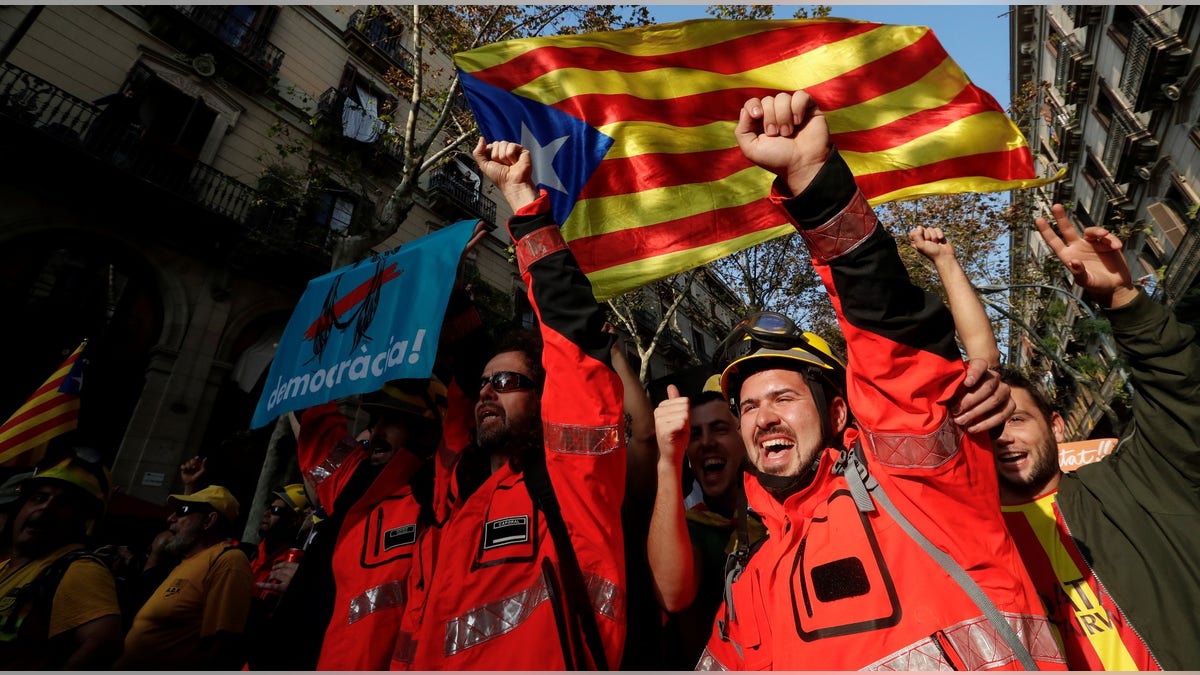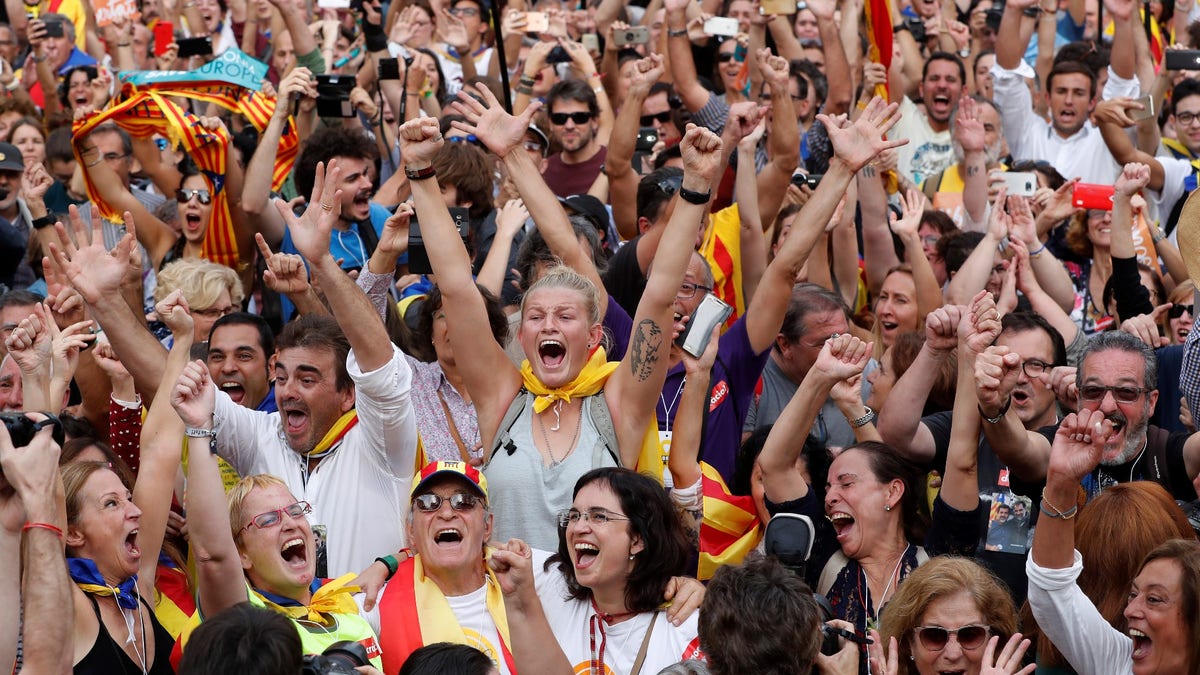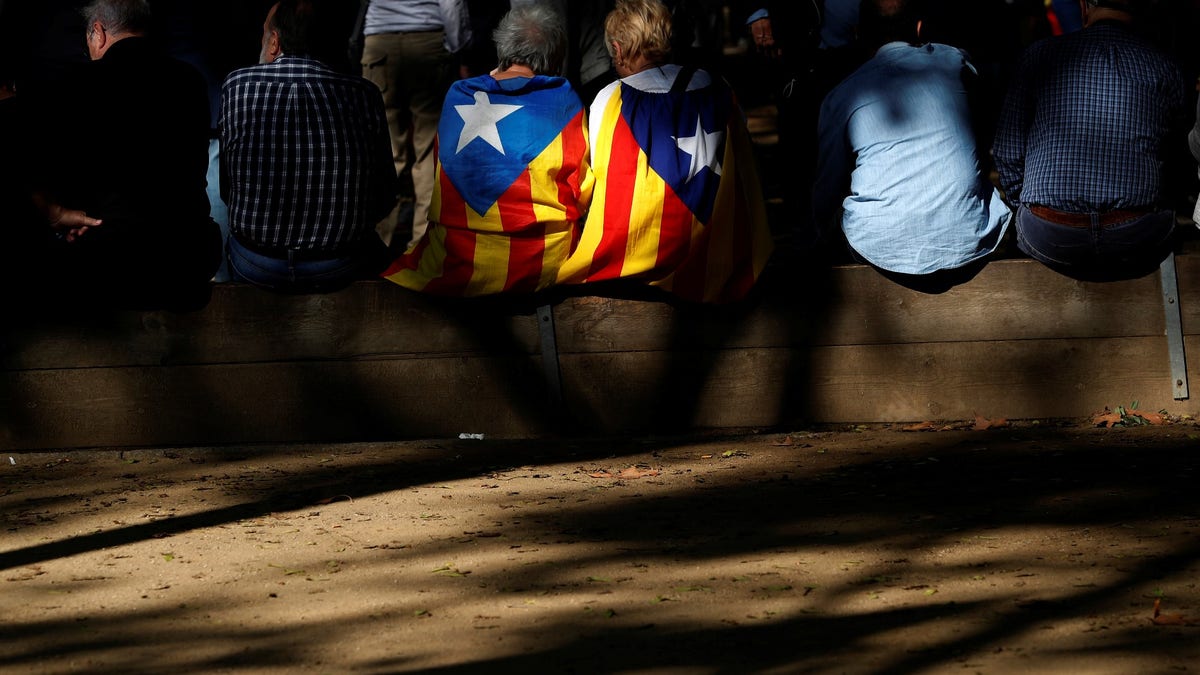
Firemen shout slongans under an Estelada (Catalan separatist flag) during a march in Barcelona, Spain, October 27, 2017. (REUTERS/Yves Herman)
It’s all flags and festivity in Barcelona right now, after the regional parliament of Catalonia declared itself independent of Spain. But a cold dose of reality is not far off, as the federal government of Spain decides how harshly to deal with its rebellious citizens.
Catalonians hopped happily in the streets of their region’s capital, Barcelona, waving the banner of independence and swigging cava, the delightful local version of champagne. For them, independence is a sweet-sounding dream. They’ve been part of Spain since the 15th Century, when King Ferdinand and Queen Isabella married and united their lands. But Catalonia has its own language, history and traditions, and its relationship with the federal government in Madrid has always been uneasy.

People celebrate after the Catalan regional parliament passes the vote of independence from Spain in Barcelona. (REUTERS/Yves Herman)
For the rest of Spain, the declaration of independence is an insult to national honor. It is the equivalent of California unilaterally declaring that it is a separate country now, because its citizens don’t like President Trump. The Spanish senate declared the breakaway illegal and Catalonia’s pro-independence government illegitimate.
How tough a stand Spanish Prime Minister Mariano Rajoy decides to take against Catalonia will probably determine if what is now a dicey political situation becomes physically violent. When Catalonians tried to hold a referendum on the question of independence earlier this month, Rajoy sent the national police to disrupt the election, which he called illegal. Police smashed their way into polling stations, confiscated ballots and roughed up hundreds of would-be voters.

People display Catalan separatist flags during a demonstration outside the Catalan regional parliament in Barcelona. (REUTERS/Yves Herman)
That infuriated Catalonians, many of whom now say they’re ready to defend their homeland with defiance, if necessary. The specter of armed police streaming into Catalonia to put down what has so far been a peaceful protest should make all Spaniards, and Europeans for that matter, act with extreme caution.
It’s unlikely that any European countries will recognize Catalonia as a sovereign state. To do so would open the door to a further dismantling of what is – in name, anyway – the European Union. Already, Britain has voted to leave. It could be just a matter of time until Scotland, which voted overwhelmingly against Brexit, decides it no longer wants to be part of the United Kingdom. The Czech Republic just elected a prime minister who dislikes centralized control from Brussels. And in Italy, the populist Northern League has set itself firmly in opposition to European control over them.
For all the dancing in the streets that Catalonians are doing now, tough days of reckoning are coming. The European Union is, in one respect, like the Mafia: once you join, you can’t leave. Or, if you try to, you’re going to pay a heavy price.








































